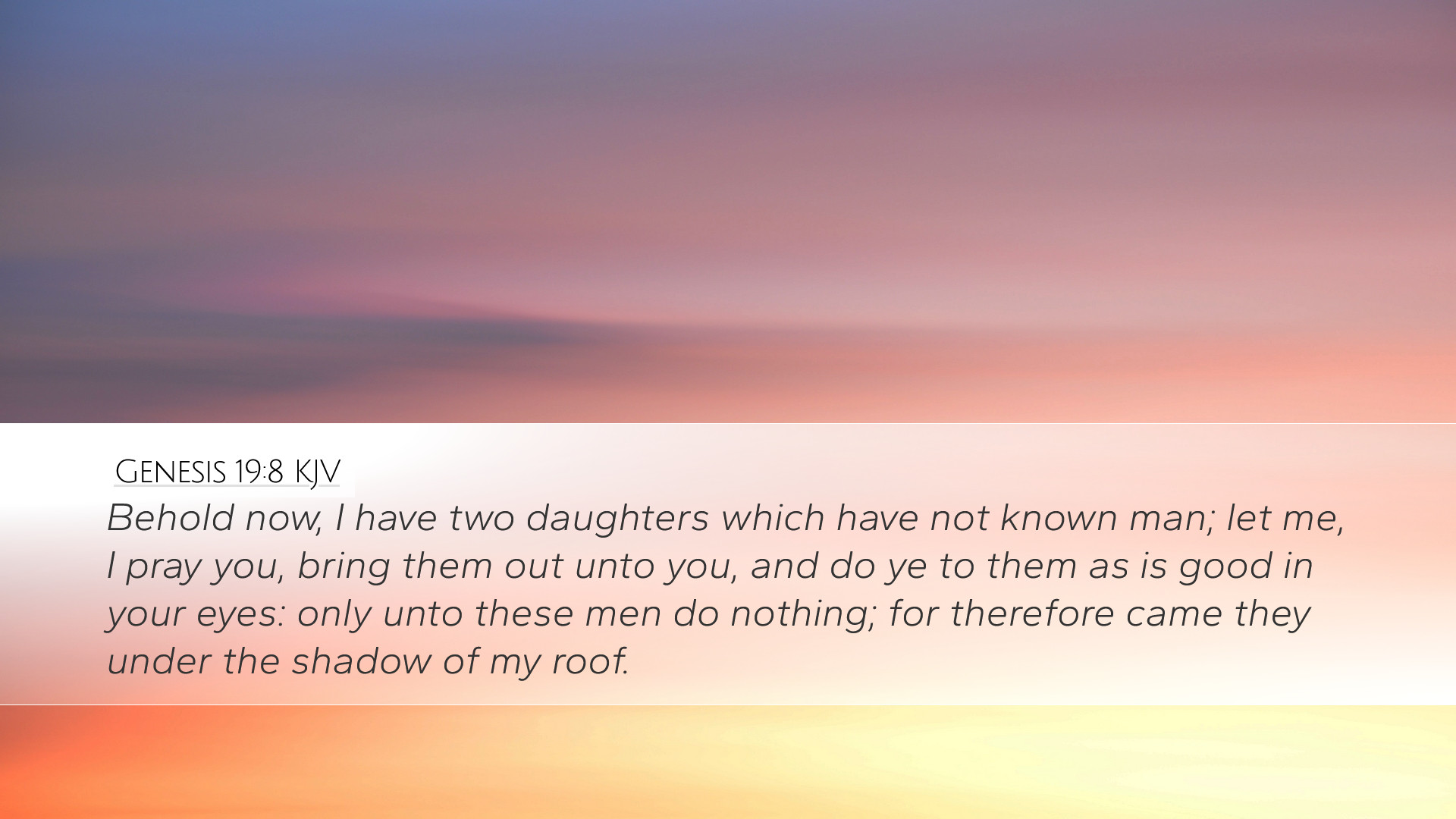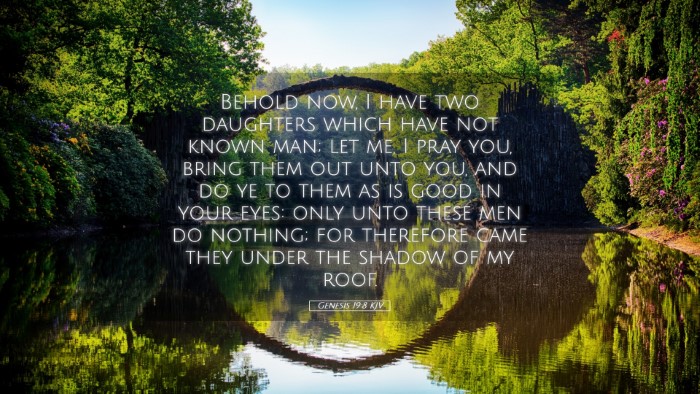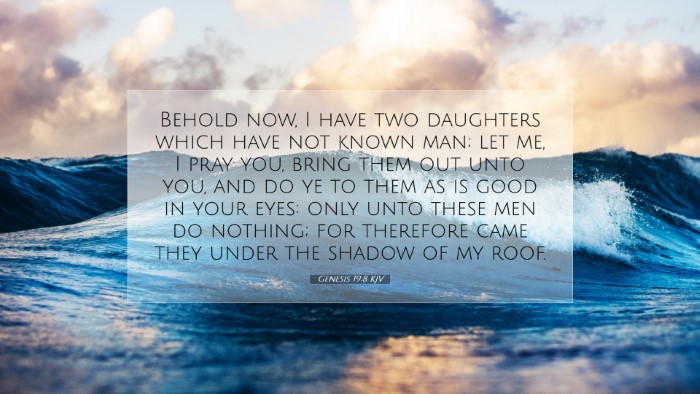Commentary on Genesis 19:8
Genesis 19:8 states: "Behold now, I have two daughters which have not known man; let me, I pray you, bring them out unto you, and do ye to them as is good in your eyes: only unto these men do nothing; for therefore came they under the shadow of my roof." This verse is among the most controversial and complex passages in the Bible, and it draws considerable attention from theologians, pastors, and scholars. Below is a summary of insights drawn from various public domain commentaries, reflecting on the profound implications of this verse.
Contextual Background
The events of Genesis 19 take place in the city of Sodom, a place notorious for its wickedness. Lot, Abraham's nephew, lives there and is faced with an extraordinary threat when two angels visit him. The men of the city surround Lot's house, demanding that he bring out the visitors so they can abuse them. Lot’s response, which includes offering his daughters in place of the visitors, raises significant ethical questions.
Insights from Commentaries
Matthew Henry
Matthew Henry emphasizes Lot's role as a protector of his guests, underscoring the ancient Near Eastern custom of hospitality. He notes that the gravity of the situation compels Lot to act in desperation. Although he offers his daughters, which appears shocking, Henry suggests that this reflects the extreme moral corruption of Sodom and the precarious nature of Lot’s situation. Lot's actions, horrific as they may seem, underscore the depth of the depravity surrounding him.
Albert Barnes
Albert Barnes discusses the custom of hospitality that was sacred in the ancient Near Eastern culture. He explains that violating the sanctity of a host's protection was a grave sin. Barnes posits that Lot's offer, while morally indefensible, reflects an instinctual desire to protect the innocent—his guests—at all costs. He suggests that Lot’s actions should be viewed within the broader context of Sodom’s overwhelming sinfulness, which obscured moral clarity.
Adam Clarke
Adam Clarke brings attention to the tragic irony of Lot's situation. He points out that Lot was willing to sacrifice his daughters to save the lives of strangers, displaying a twisted sense of morality wrought by the surrounding evil. Clarke also addresses the implications of Lot’s choice, examining the potential impact on his daughters' lives. He emphasizes the perils of living in a corrupt society and how it can distort one's values and decision-making processes.
Theological Reflections
Scholars suggest that this passage reveals deep theological truths about sin, protection, and moral compromises. It highlights:
- The nature of sin: The depravity of Sodom illustrates humanity's capacity for moral decay, challenging readers to reflect on contemporary societal sins.
- Divine protection: Lot's insistence on protecting his guests symbolizes God’s provision amidst adversity, showcasing the tension between cultural norms and divine expectations.
- The cost of compromise: Lot’s offer serves as a stark reminder of how living in sin can lead individuals to make desperate, damaging choices.
Application for Today's Believers
This passage encourages believers to engage deeply with their moral convictions and the surrounding culture. The implications of Lot's actions challenge pastors and theologians to think about how they respond to evil and protect the vulnerable.
- Moral Clarity: Believers must strive for moral clarity in a world that often blurs ethical lines.
- Hospitality and Protection: The call to protect the most vulnerable must remain paramount, ensuring that one's ethical imperatives align with divine statutes over societal norms.
- Cultural Awareness: Awareness of cultural influences is necessary to navigate the complexities of faith in modern society without compromising core beliefs.
Conclusion
The complexity of Genesis 19:8 lies not merely in its surface-level horror but in the theological, ethical, and cultural discussions it ignites. The insights derived from established commentaries offered by Matthew Henry, Albert Barnes, and Adam Clarke serve to deepen our understanding of this passage. As we wrestle with such provocative narratives, we are invited to examine the effects of living in a morally compromised society and our response as followers of Christ.


